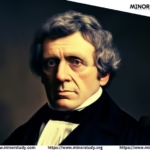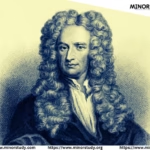Charles-Augustin de Coulomb: Pioneer of Electromagnetism
Full Name: Charles-Augustin de Coulomb
Born: June 14, 1736, Angoulême, France
Died: August 23, 1806, Paris, France
Nationality: French
Known For: Coulomb’s Law, advancements in electrostatics and magnetism
About Charles-Augustin de Coulomb
Charles-Augustin de Coulomb was a French physicist and engineer whose groundbreaking work in electricity and magnetism laid the foundation for modern electromagnetic theory. He is best known for developing Coulomb’s Law, which quantifies the electrostatic force between charged particles. His studies also extended to friction, torsion, and material elasticity.
Major Contributions
1. Coulomb’s Law
Coulomb’s Law describes the force between two charged particles: F=kq1q2r2F = k \frac{q_1 q_2}{r^2}
F: Force between charges
q₁, q₂: Magnitudes of charges
r: Distance between charges
k: Coulomb’s constant
This law established the inverse-square relationship for the force, similar to Newton’s law of gravitation.
2. Torsion Balance
Coulomb invented the torsion balance, an instrument that measures very small forces.
He used it to verify his law of electrostatics and investigate forces in magnetism.
3. Studies in Friction
Coulomb conducted extensive experiments on friction, categorizing static and kinetic friction and their effects on materials.
4. Elasticity and Strength of Materials
His work in material science included studies on the mechanical properties of materials, such as torsion, tension, and elasticity.
Historical Significance
Coulomb’s Law provided the mathematical basis for understanding electrostatics and laid the groundwork for future discoveries in electromagnetism.
His torsion balance became a critical tool for precise measurements in both electricity and magnetism.
Coulomb’s insights influenced later scientists like André-Marie Ampère, Michael Faraday, and James Clerk Maxwell.
Timeline
1736: Born in Angoulême, France.
1760: Graduated as a military engineer from École Royale du Génie in Mézières.
1777: Presented his paper on torsion and the strength of materials.
1785: Published his famous work on Coulomb’s Law.
1806: Died in Paris, France.
Famous Quotes
“Electricity and magnetism are forces of nature that shape our understanding of the universe.”
“The simplicity of natural laws is their most profound beauty.”
Interesting Facts
Military Engineer: Coulomb served as a military engineer in the West Indies, which inspired his interest in material science and mechanics.
Escape from Revolution: He retired from public life during the French Revolution but resumed his work under Napoleon’s rule.
Legacy in SI Units: The coulomb (C), the SI unit of electric charge, is named in his honor.
Comprehensive Research: He studied not only electricity but also magnetism, soil mechanics, and the friction of machinery.
Legacy and Impact
Coulomb’s work remains fundamental to the fields of physics and engineering. His contributions to electrostatics and the study of forces have practical applications in technologies such as capacitors, electric circuits, and magnetic storage devices.
Why Is Charles-Augustin de Coulomb Important?
Coulomb’s meticulous experiments and theoretical insights advanced our understanding of how charged particles and magnetic materials interact. His work provided the foundation for the electromagnetic theories that drive modern technology, from telecommunications to renewable energy.








